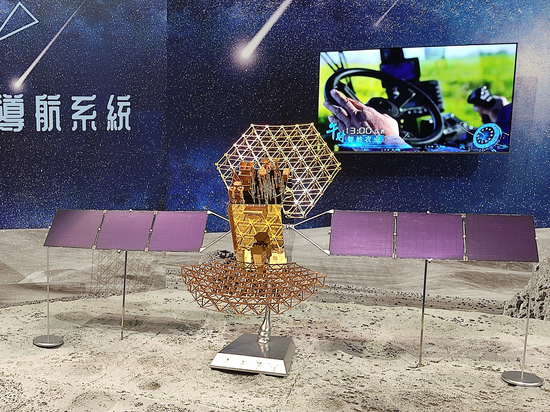The first joint goals of China and Russia in space are determined
[ad_1]

Space cooperation can start with a flight to an asteroid
In three years, a Russian device may fly to the asteroid on a Chinese apparatus, in a few more years we may have a joint station at the South Pole of the Moon … So far, we can only talk about these projects outlined earlier in the subjunctive mood. The fact is that even with the most friendly relations between our two countries, we should be interesting to each other as more or less equal partners.
We tried to figure out what could now mutually attract Roscosmos and the Chinese National Space Administration (China Space Agency).
Let’s see what is the balance of positions between our countries today. China has its own national manned space station, and five flights of automatic stations Chang’e to the Moon and Tianwen-1 to Mars. By and large, Russia, apart from manned flights to the ISS, has nothing to boast of in recent history.
But joint programs with the Chinese are still planned. In particular, we have an agreement to supply three Russian instruments to the Chinese station Tianwen-2, which will go into space in 2025. Its goal is to take soil from an asteroid temporarily attracted by the Earth and visit the comet nucleus of the Main Asteroid Belt. The Russian Space Research Institute of the Russian Academy of Sciences participates in the program.
There is a working agreement on a promising station at the South Pole of the Moon. We are talking about the start of construction in 2026-2030 of the Russian-Chinese International scientific lunar station. This mission is planned as a joint one with the Russian apparatus Luna-28. But, as you understand, the success of Luna-28 will greatly depend on the success of Luna-25, which should launch in July 2023, as well as Luna-26 and Luna-27 … We did not land on the Moon since 1976. Can we repeat? Must! After all, once we were pioneers in the study of the Moon, and in the study of Mars.
As for orbital tasks, here we have few joint plans: a little earlier than the asteroid and Luna-28, we will have to send a Russian-Indian scientific instrument-spectrograph to the Chinese manned station, which in 2017 won the competition announced by the Chinese Space Agency. The implementation of the program on the cross-location of stations of navigation systems on our territories is about to begin.
In 2015, we agreed with the Chinese on the complementarity of the GLONASS and Beidou (Beidou) systems – the convergence of the coordinate system and the time scale to provide a more reliable and high-quality navigation signal. Some movements in this direction began only in September last year, when the corresponding contract between Roscosmos and the Chinese Space Agency was signed. According to Roscosmos, three Russian measuring stations are planned to be built in the Chinese cities of Changchun, Urumqi and Shanghai, and three Chinese – in the Russian cities of Obninsk, Irkutsk and Petropavlovsk-Kamchatsky.
– The convergence of navigation systems, by and large, is useful, – says Ivan Moiseev, head of the Space Policy Institute. – The consumer, whose device provides a signal with a greater number of satellites, will benefit. And also someone who will manufacture and sell chips associated not with two GLONASS and GPS systems, as it is now, but with three: GLONASS, GPS and Beidou. Is it necessary to say that this manufacturer is not in our country?
It is noteworthy that the Chinese, who began to develop their navigation system later than us, have long surpassed GLONASS in the number of satellites. In medium-high orbit, at an altitude of 21,500 km and in geostationary orbit (36,000 km), they have about 40 vehicles flying. We have the same – only on medium-high and only 26 devices.
As for other satellite constellations – remote sensing of the Earth or communications – there is no information on joint activities for them yet.
“Theoretically, China could help us with Earth remote sensing information,” says Moiseev, “but since it partially uses US licensed technologies, it is very afraid of imposing secondary sanctions. In particular, the Chinese side quickly refuted the information that appeared in the press about supporting our country with remote sensing maps of territories. As for the components, if the PRC sells them to us, then for a lot of money.
It is clear that there is no open information on military, intelligence topics. I would like to believe that here we have enough of everything: both satellites, and components, and money for their purchase. I would like us to believe, first of all, in our own strength, to be more mobile, responding to the challenges of the time.
[ad_2]
Source link








